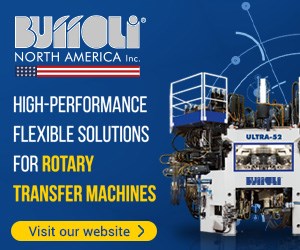Titanium Machine-Ready Blanks
TCI Precision Metals’ titanium machine-ready blanks that cut the overall cost of producing parts are available in custom sizes from plate to forged block.
TCI Precision Metals’ titanium machine-ready blanks that cut the overall cost of producing parts are available in custom sizes from plate to forged block. The company offers titanium machine-ready blanks for the aerospace/defense, medical and dental industries and is certified to AS 9100B, one of the aerospace industry’s highest standards.
The blanks allow production to start immediately, meaning they can be loaded directly into the machine without prep operations, such as sawing, grinding, flattening or squaring. This results in less time spent on multiple setups and adjusting fixture offsets, which can save 15 percent per part and more, the company says. By ending prep time and minimizing setup time, operators and machines are more productive and throughput capacity is increased. In many cases, an entire month of machine time has been freed up for additional production.
These machine-ready blanks arrive with tolerances guaranteed as close as ± 0.0005” dimensionally and ± 0.0002” for flatness, squareness and parallelism, the company says. The blanks are processed using precision sawing, double-disc grinding, Blanchard grinding, duplex milling and sub operations, such as flattening, deburring and wet timesaving.
Related Content
-
T.J. Davies Retention Knobs Harden Over Time
Each retention knob is magnetic particle tested and pull tested to 2.5X the pulling force of the drawbar it is designed for.
-
Forkardt Hardinge Swiss Workholding Provides Reliable, Consistent Performance
The company’s Swiss collets are designed to securely hold parts without marring surfaces, minimizing vibration to ensure smoother machining, enhanced accuracy and extended tool life.
-
JR Machine Launches Expansion Strategy, Hires New CEO
An investment from Schneider Resources Holding positions JR Machine to grow in emerging markets such space exploration and green energy.










.jpg;maxWidth=300;quality=90)

